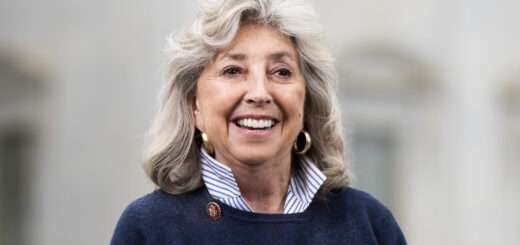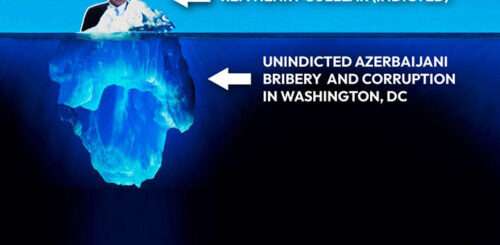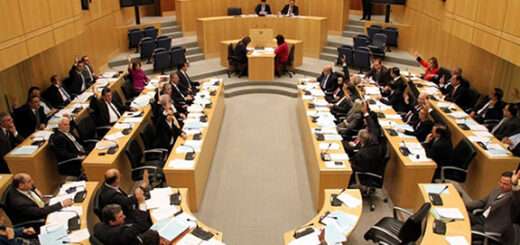Recognize Armenian genocide, UK PM is urged

ARMENIANS in the UK marked the 109th anniversary of the Armenian genocide last month with calls for its formal recognition and warnings about current threats to their country’s sovereignty.
To coincide with the anniversary, a group of church leaders wrote to the Prime Minister and urged the Government to recognise the Armenian genocide formally. The group was led by the Armenian Primate in the UK and Ireland, Bishop Hovakim Manukyan, and included the former Archbishop of Canterbury Lord Williams.
They wrote: “An act of recognition would not only honour the memory of those who suffered and affirm justice but would also reaffirm the UK’s commitment to upholding human rights. Recognition of the Armenian Genocide by the UK would also send a clear message to Turkey and Azerbaijan to cease their aggression against Armenia.”
The letter refers to the recent military incursion into the disputed territory of Nagorno-Karabakh, which forced the 120,000 ethnic Armenians who lived there to flee. During his recent visit to Armenia, Archbishop Welby met refugees from the area, which is known as Artsakh by Armenians.
Other signatories to the letter included the Bishop of Southwark, the Rt Revd Christopher Chessun; the Bishop of Manchester, Dr David Walker; and the Dean of Windsor, Dr Christopher Cocksworth, with the general secretaries of Churches Together in England, and Churches Together in Britain and Ireland.
Also to mark the anniversary, parliamentarians representing the main political parties joined Bishop Manukyan and the Armenian ambassador to the UK, Varuzhan Nersesyan, at a wreath-laying ceremony at the Cenotaph.
The chair of the All-Party Parliamentary Group on Armenia, the Conservative MP Tim Loughton, made a speech reiterating his call on the Government to recognise the Armenian genocide formally. Mr Loughton is the sponsor of a Private Member’s Bill that would enshrine recognition of the genocide.
Andre Vartanian, a member of the Armenian National Committee of the UK, which organized the event, said that it was “undisputed” that as many as 1.5 million Armenians had been killed in a “premeditated and systematic” way by the Ottoman Empire between 1915 and 1918. It was, he said “inexplicable” that the UK still did not formally recognise the events as a genocide, which left it out of step France, the United States, and other countries.
On a visit to the Armenian Genocide Memorial in Yerevan last October, the Archbishop of Canterbury told the Church Times: “It’s a reminder of the extremes of human hatred and cruelty, and calls us to remember that, when hatred is allowed in any way to grow, it flourishes easily in societies that seem civilized.”
“I DID not learn about the genocide from books; I learnt about it from my great-grandmother,” Bishop Manukyan said in his speech at the Cenotaph explaining how the genocide and its recognition had great personal, as well as political, importance.
Annette Moskofian, who chairs the Armenian National Committee, said that, for as long as Turkey denied the genocide, Armenians would never have justice. Her grandmother had told her harrowing stories of the things that she witnessed while escaping the massacres. “We can only pay respect to their memories when there is justice.”
The genocide of 1915, and persecution in earlier decades, meant that ethnic Armenians were scattered around the world. Hrach Boghosian is now in his seventies, and came to the UK from Iraq when he was 28. He was born in Iraq, a country to which his grandparents had escaped during the genocide.
For Mr Boghosian and many other members of the Armenian diaspora, the Church plays a central part in community life. “The Church is not only a worshipping place: the Church for us is a national community. We meet each other, we talk to each other . . . it’s a place where we feel ourselves Armenian,” he said
Chris and Matthew, both of whom were born in the UK, but whose families come from Armenia, attend services at the Armenian churches in London, and spoke warmly of the part that churches play in the Armenian community.
“The Church is the one bastion of Armenianness that all Armenians can come to and feel a connection to their homeland,” Chris said. The teenage Matthew agreed: “It’s the centre of the community.”
This applied even for those who were not particularly religious, Matthew said, although the cross around his neck, and the rosary between his fingers, suggested that he was not in that category.
Mr Vartanian put the connection in a historical context: “Christianity and Armenianness are inextricably linked: you cannot separate them, and we have suffered centuries of persecution precisely because of our Christian faith.”
Ancient churches and Christian burial grounds were under threat, especially in Nagorno-Karabakh, he said, which risked a “cultural genocide” in the 21st century. “Within regions ‘cleansed’ of Armenians lie some of the oldest Christian heritage in the world,” he said, an assessment which might also apply to Jerusalem, where part of the historic Armenian Quarter is currently the subject of competing legal claims.
An Armenian man, Gegham, suggested that persecution for their Christian faith, as well as the genocide, “unifies Armenians. Every person has someone in their family who is connected to genocide.”
Sonik, another Armenian, in her seventies, said: “It’s on our skin.”
LATER in the afternoon, the younger, louder voices of the Armenian community were in evidence in a demonstration outside the Turkish embassy in Belgravia.
Members of the Armenian Youth Federation — an affiliate of the Armenian Revolutionary Federation, a political party — led the chanting and placard-waving across the street from the embassy, where four or five counter-protesters had gathered. One woman was draped in the Turkish flag, keeping her back to the Armenians so that they had a full view of the star and cresent moon on a blood-red background.
Araz, in her early twenties, and Alex, in his late teens, were both born in the UK into Armenian families, and are proud of their identity.
Araz spoke passionately about the current situation in and around Armenia, including an ongoing campaign to reverse the government’s decision to cede a portion of land on the Azerbaijani border in order to secure a peace deal.
The residents of the villages in the land being transferred are protesting against the move, and the Bishop of the region has been at the forefront of the campaign, strengthening the Church’s reputation for being in the vanguard for efforts to preserve historic Armenia.
“We’re scattered all over the world, because of the massacres,” Bishop Manukyan said on Wednesday, referring to the genocide, but also pointing out that those displaced from Nagorno-Karabakh last year were also now displaced, mostly within Armenia.
Soon, the occupants of the border villages may be the latest Armenians to be scattered, although it is unlikely that any of them, in the short term at least, will end up going as far as Mariana’s family, who were part of the Armenian community in Argentina.
Growing up in Buenos Aires, Mariana said, her relationship with her Armenian identity was not always easy. She recalled being frustrated at having to cross the city to attend an Armenian school rather than go to classes with her friends from the neighbourhood.
One morning, overwhelmed by frustration, she shouted: “I don’t want to be Armenian any more!” in earshot of her grandfather, who had been orphaned in the genocide. “It was the only time I ever saw him cry.”
As with many in the Armenian diaspora, the land to which Mariana traces her ancestry is not within the borders of the modern-day state of Armenia, but in Turkey.
With two of her brothers, she travelled to where her grandmother had lived. A man whom they met by a well in the village took them to the ruins of the Armenian church that had once stood there.
“There were aubergines and tomatoes growing there in the churchyard, but we could make out the altar made of marble, and the walls.
“It was a really spiritual moment, thinking of all that my grandparents had lost. We felt that this was where we belonged — the smells, the noises, all reminded us of our grandparents.”
The Turkish man who had brought them to the site lamented the “war”, which had led to the departure of the Armenians: a characterisation of the genocide which remains the official version of events in Turkey.
He offered her a piece of stone from the church where her grandmother had been baptised. “I felt: ‘You’re giving it to me as if it belongs to you, but — bloody hell! — it doesn’t belong to you!’”
Recognition of the genocide was important, Mariana said, because for a people’s trauma to go unrecognised not only denied the reality of the trauma, but of the people who suffered it. “We feel we don’t exist.”
Turkey’s denial of responsibility adds another dimension to the pain: “Its like somebody’s been raped, and not only are they not believed, but they are accused of being a troublemaker.”
THE counter-protesters beside the door of the embassy left shortly before 7 p.m. As they walked away, several made a hand gesture — with index and little finger raised — associated with the Grey Wolves, a far-Right political movement promoting Turkish ultranationalism.
The provocation was met with jeers from the Armenians, but soon after, at the scheduled time, they began to end the demonstration. Araz made a defiant speech, before Fr Shnork Bagdasarian, the pastor at St Sarkis’s Armenian Church, in Kensington, led the group in prayers.
Everyone knew the words to the Lord’s Prayer in Armenian. Afterwards, they sang their country’s national anthem, a rousing hymn to liberty, not unlike “La Marseillaise”, and usually accompanied by cymbals. Sung a cappella on the roadside, with voices hoarse from hours of chanting, it took on a plaintive tone.







